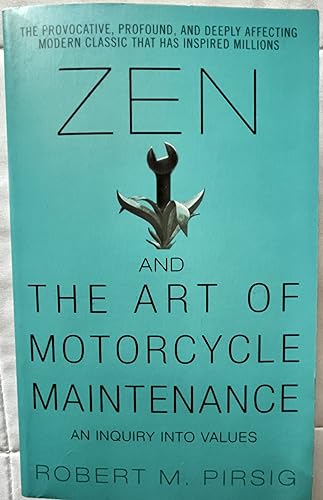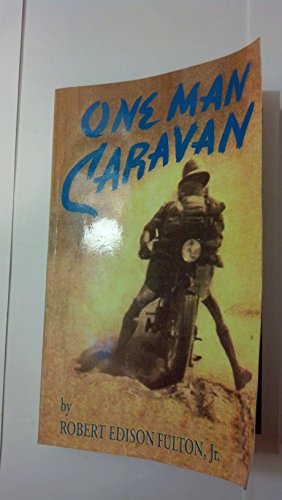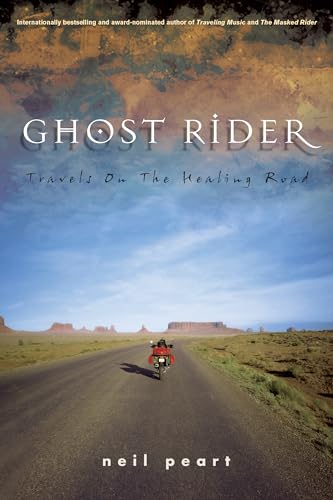Contents
Going to an all-boys school is tough. Especially when you’re a sensitive kid.
I was never into sports, which meant I also grew up chubby. And the combination of a lack of physical prowess and alienation due to the aforementioned physical prowess doesn’t leave one with a lot of things to do after class.
Fortunately for me, books turned out to be one of those not-a-lot-of-things. All I did was read. I never really felt good about myself growing up (still don’t), but when I was reading, I wasn’t myself. I was the person who wrote the book.
Those words may have been written by someone else, but they were mine to keep. Eventually, those words became a part of my identity, and I credit a large part of the development of my personality to literature.
In fact, my fascination with motorcycles, which eventually turned into a reality that I contrived, started with Zen And The Art Of Motorcycle Maintenance (more on this later).
Between mindlessly swiping through Instagram stories of people we don’t care about and swiping through Tinder profiles that we’re not going to match with, the average attention span of the person nowadays has been ruined thanks to social media.
But you can rebuild it. You have to rebuild it. Because a good way to deal with a difficult outer world is to develop a richer inner world.
Which the following classic motorbike books will help you do, regardless of whether or not you’re a motorcycle enthusiast.
Zen and the Art of Motorcycle Maintenance: An Inquiry into Values by Robert M. Pirsig (1974)
Pirsig received 126 rejections before an editor finally published the book. Understandably, he never expected to make a profit.
He went on to sell over 5 million copies.
And to this day, the book is still widely revered both within and outside the motorcycle community and is arguably one of -if not the most- widely read motorcycle books of all time.
A fictionalized autobiography of a 17-day journey he made with his son from Minnesota to California, the book is a poignant, beautiful cocktail of philosophy and introspection. It doesn’t matter how much you fancy motorcycles- this breathtaking book has something to take away for everyone.
Robert M. Pirsig is a writer-philosopher with a Guggenheim Fellowship, and his words consequently carry weight for everyone from the most hardcore of bike enthusiasts to people who get nervous on bicycles.
Jupiter’s Travels: Four Years Around the World on a Triumph by Ted Simon (1979)
“I am learning, as I make my way through my first continent, that it is remarkably easy to do things, and much more frightening to contemplate them.”
Back then, Triumph motorcycles broke down every 10 minutes, in contrast to the extremely revered monsters they are today. In spite of this, Ted Simon drove throughout all of the countries during a time when doing so was unheard of. Braving through some of the most horrendous civil wars with equally profound insights, this book is going to make you want to buy a shady 70s-era vintage motorcycle off of Craigslist and travel the world.
No matter how many times I read and re-read this book, I often found myself physically nodding throughout the book in agreement with the British motorcycling-travel-writer.
One Man Caravan by Robert Edison Fulton, Jr. (1937)
The events of this book take place between mid-1932 and late 1933, documented by a young man traveling the world solo on a two-cylinder Douglas ( an absolute classic motorcycle). Despite the time period in which this book is based, you’ll rarely ever come across passages in the book that would be considered derogatory nowadays. And that alone speaks volumes about Fulton’s character and worldview.
In a tone somehow both informal and eloquent, you’ll be glued to the book as your turn through the pages learning of his being shot at in the Khyber Pass by Pashtun tribesmen, avoiding Iraqi bandits, spending a night in a Turkish jail, and being a guest of Indian rajahs.
The book was published for release in 1937, and in less than 2 years, all hell would break lose throughout the countries he acquainted himself with. While heartbreaking in retrospect, the book still serves as a literary marvel that shows that despite our difference in cultures, human beings still have a lot in common.
The Motorcycle Diaries: Notes on a Latin American Journey by Che Guevera (1992)
Written by none other than the revolutionary Che Guevera, this book is a memoir of the travels of the Marxist Revolutionary when he was just 23 years old with this then 29-year-old friend Alberto Granado.
Wanting to learn more about a South America they knew only from books (sensing a theme here?), this book is an account of their travels around Latin America- primarily by motorcycle, but also by raft, horse, bus and hitchhiking.
Guevera, who was born into the upper-middle class, was deeply affected by the persecution of the poor, disabled and underprivileged in society, and the book is a testament to the cementing of his beliefs in fighting for the poor and a united Latin America.
Regardless of what your opinion is about the revolutionary, this book covers the premise for his conversion from a life of privilege to that of fighting for those with the opposite- and is a fantastic read.
Ghost Rider: Travels on the Healing Road by Neil Peart (2002)
Rush is a multi-platinum winning Canadian rock band, massively revered for its complex, eclectic lyrical genius- mostly by the late drummer Neil Peart.
On August 10th, 1997, his (at the time) only daughter died in a car crash, at the very young age of 19 years old. Less than a year later, his wife died of cancer. An unbearable tragedy, Neil told his bands to “consider him retired” at his daughter’s funeral.
Instead of succumbing to alcoholism and drug abuse, he decided to take off on a 55,000-mile solo trip, traveling by motorcycle from his home in Quebec to Telegraph Creek, British Columbia (through Alaska, the northern Rockies, the Californian coast, Mexico and Belize) to reflect on his life.
This book is a series of philosophical revelations that he had during this travels- hence the name “Travels on the Healing Road”.
The phrase ‘Ghost Rider’ is from one of his songs. A catchy, simply progressive metal song upon listening, the lyrics reach a whole new metaphorical level when you go through the contents of the book and understand where the lyrics come from.
A poignant, beautiful work of literature, this travel adventure novel/memoir is a testament to Neil Peart’s literary prowess and an ode to both the misery of human existence and the resilience of human nature to deal with said misery.
Conclusion
The quote ‘Actions Speak Louder Than Words’ is widely parroted for a reason. But the words that make up our thoughts can help inspire us to take better action. Often times, due to the confusion present in the craziness you get with the basic cable package of life, we go through life with the wrong thoughts.
Books like the ones mentioned here contain words that challenge such line of thought. They make you reevaluate your experiences and consequently your perspective.
And as motorcyclists, there are few books that will help us evaluate such an important part of our lives, as much as the classics listed here.







 Your Friends Will Love These – 5 Insane Motorbike Christmas Gifts
Your Friends Will Love These – 5 Insane Motorbike Christmas Gifts  3 Motorcycle TPMS Options For Longer, Better Rides
3 Motorcycle TPMS Options For Longer, Better Rides  Better Rides For A Better Price Tag – Lexin Bluetooth LX-B4FM
Better Rides For A Better Price Tag – Lexin Bluetooth LX-B4FM  The 11 Best Motorcycle Rides In The United States
The 11 Best Motorcycle Rides In The United States 